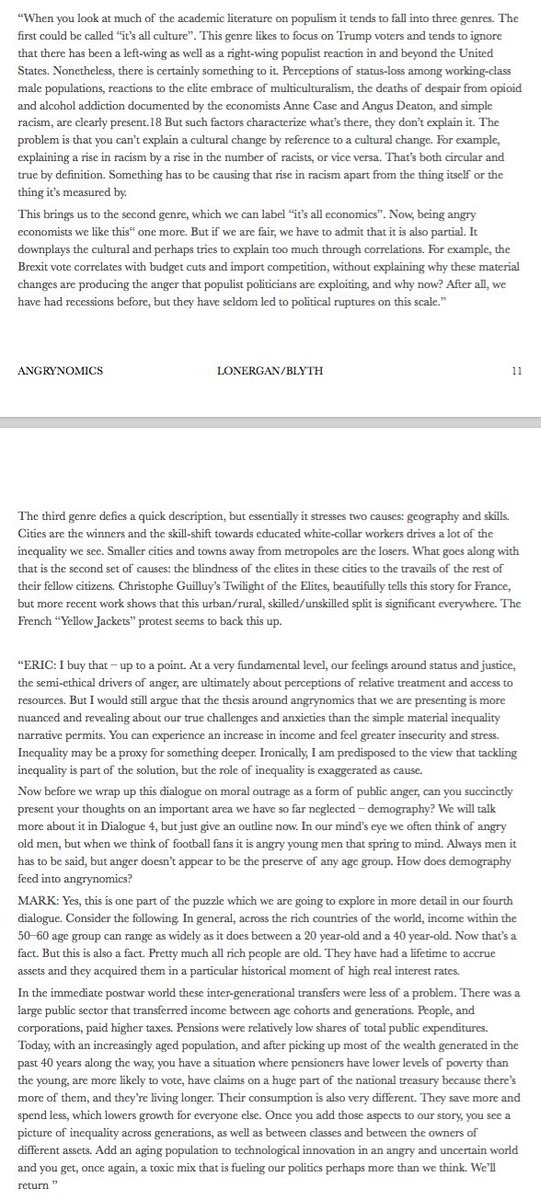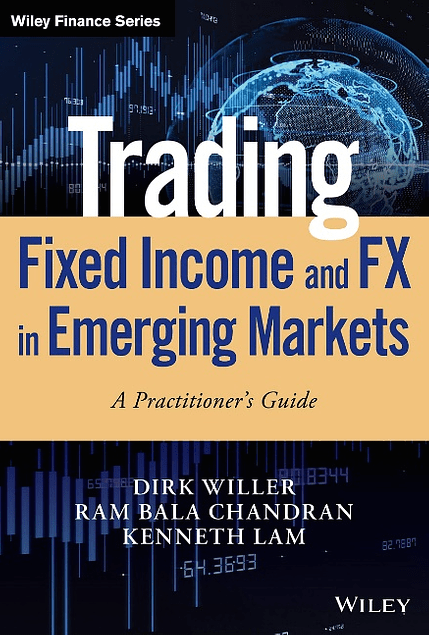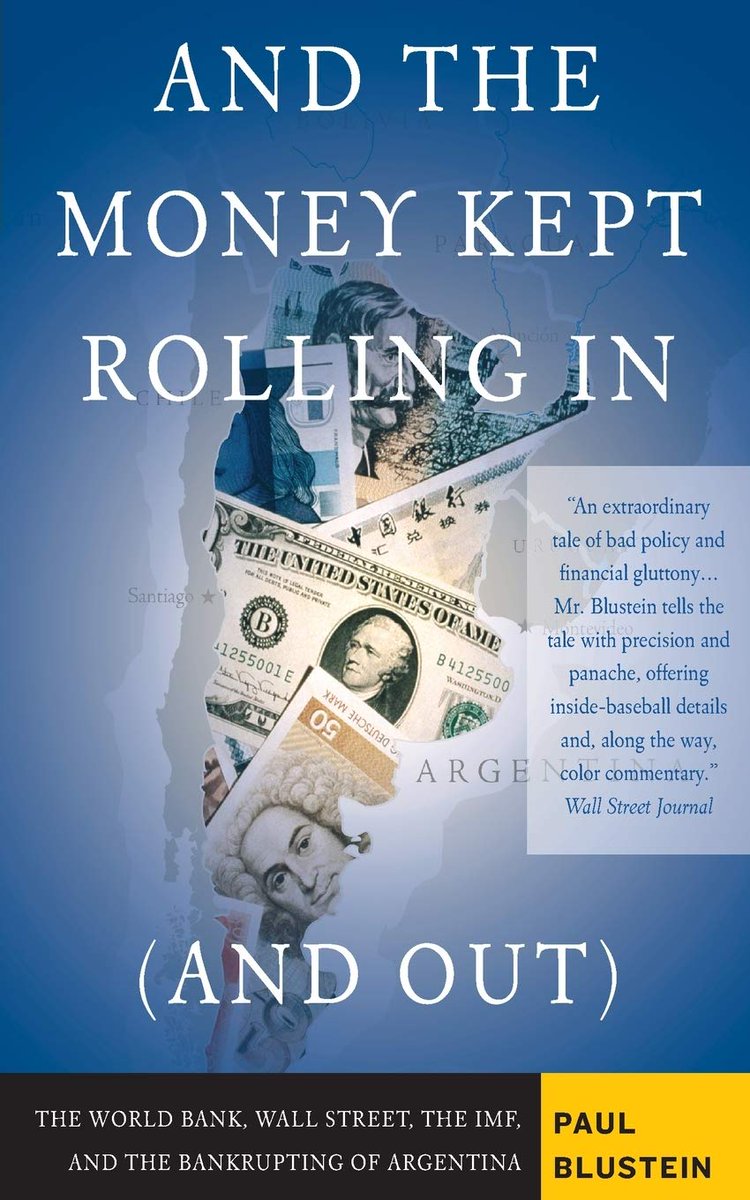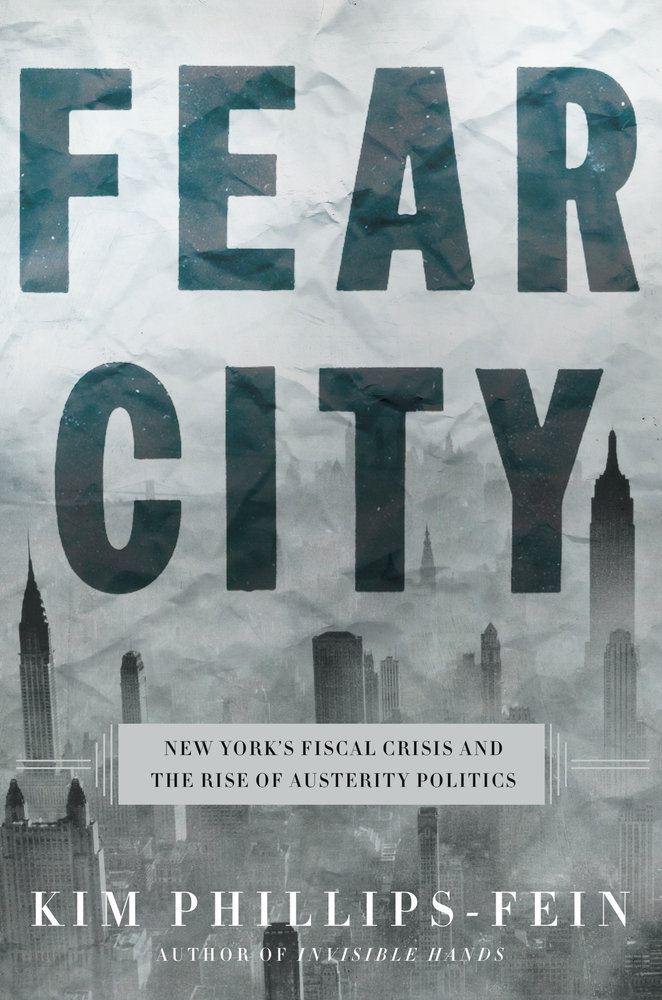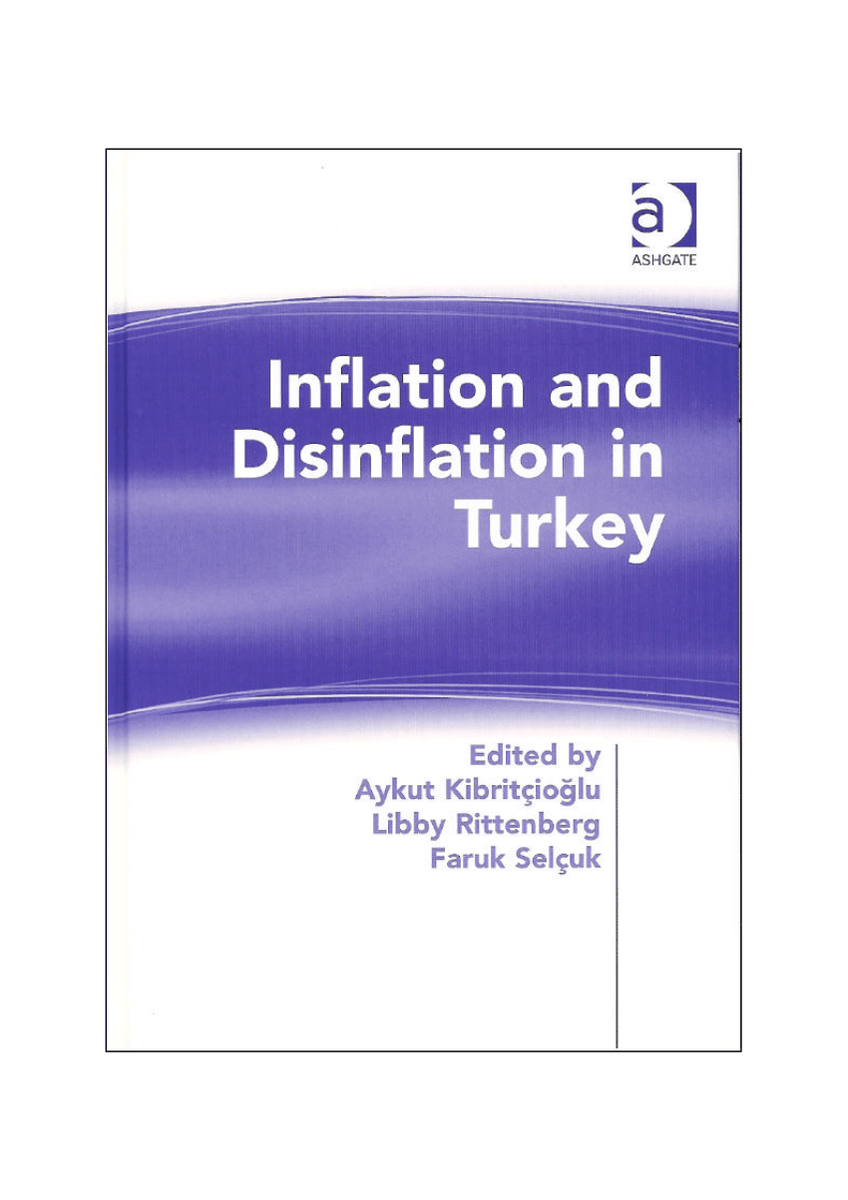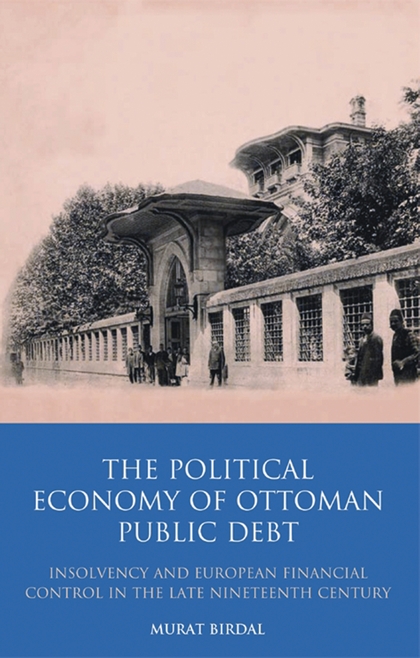I just finished "The Chastening" by Blustein. A minor problem of mine with the market history sub-genre is quantities they talk about becomes hard to weigh as time passes. I mean hell if I know 8 bn $ in Indonesia at 97 is big or not? Just throw some charts here and there.
It is a good read overall but I would have enjoyed it much more if I didn't read "The Rotten Heart of Europe" last week, which is I N S A N E L Y good even in 2020.
(Continuing on books that I read this year) - Starting with Fintwit 2020 trio.
"Trade Wars are Class Wars" - I read it AFTER the crazy discussion and tbh find the discussion as only loosely linked with the book lol. If you could only read one book from the trio, read TWCW.
"Trade Wars are Class Wars" - I read it AFTER the crazy discussion and tbh find the discussion as only loosely linked with the book lol. If you could only read one book from the trio, read TWCW.
"Angrynomics" - I really like Lonergan&Blyth. I have a dedicated folder of them on my computer. The book is written as a conversation between them. It is like eating a table full of delicious side-dishes. Odd Lots has an episode featuring Mr.Lonergan which could give you a taste.
"The Deficit Myth" - It is endorsed by Ice Cube & Paul Mcculley. I kinda felt like this book is written for arming the progressive politicians with nicely structured answers. A bit boring if you are already familiar with the MMT tho.
TWCW-> 4,5/5
Angrynomics-> 4/5
The Deficit Myth-> 3/5
The last published-in-2020 book I read is this ---> 4/5
It just goes over what worked so far & why it has been working. I especially liked two "Event Guide" chapters (rates and fx in events are discussed separately).
Angrynomics-> 4/5
The Deficit Myth-> 3/5
The last published-in-2020 book I read is this ---> 4/5
It just goes over what worked so far & why it has been working. I especially liked two "Event Guide" chapters (rates and fx in events are discussed separately).
The 2nd best econ/fin book I read last year is "The Paradox of Risk" by Angel Ubide(2017) -->5/5 (Spanish cover is much better)
If you wanna understand/go over 08-20 central banking, this is it.
I wish I had read this 3 years ago. I wish policymakers had read this 3 years ago lol
If you wanna understand/go over 08-20 central banking, this is it.
I wish I had read this 3 years ago. I wish policymakers had read this 3 years ago lol
The New Lombard Street by Perry Mehrling (4,5/5) --> I love that guy. It is a dense summary of his course. I probably couldn't understand sh*t if I didn't study his course before lol.
Monetary Policy Ops by Bindseil-->5/5 for plumbing 1/5 for rest but it is 90% plumbing. Can someone please explain to me the reasoning behind the obsessions with
-symmetric corridor systems
-why CBs should create artificial interbank markets
-"Lean BS" and "protecting CB equity"
-symmetric corridor systems
-why CBs should create artificial interbank markets
-"Lean BS" and "protecting CB equity"
Blustein's book on Argentina --> 4/5
It is short and captivating. I think the IMF dropped the ball on this one rather than Asia.
One-sentence summary --> “Where will the growth come from?”
(I cut 0,5 because it is like a douchebag convention inside, Reinhart, Rogoff, Roubini etc)
It is short and captivating. I think the IMF dropped the ball on this one rather than Asia.
One-sentence summary --> “Where will the growth come from?”
(I cut 0,5 because it is like a douchebag convention inside, Reinhart, Rogoff, Roubini etc)
"Unlikely Partners" by Gewirtz(2017)->4/5
It is about how did the Chinese acquire the RoW economic thinking & How different groups that compete for influence inside the country reacted. What struck me the most is even the Comecon stuff was like came from another dimension to them
It is about how did the Chinese acquire the RoW economic thinking & How different groups that compete for influence inside the country reacted. What struck me the most is even the Comecon stuff was like came from another dimension to them
Fear City: New York's Fiscal Crisis and the Rise of Austerity Politics by Phillips-Fein(2017) - 4/5.
How a municipal budget crisis in the 1970s remade the city.
Watch Taxi Driver or Joker before reading it get into the mood lol.
How a municipal budget crisis in the 1970s remade the city.
Watch Taxi Driver or Joker before reading it get into the mood lol.
TR books
The Political Economy of Turkey(1990)-4/5-->Old but a really good book on Turkish econ in the 80s Rodrik's piece is the best ofc
Inflation and Disinflation in Turkey(2002)-3/5-->Just after the peak of the crisis, a bit boring. I can share my notes if you are interested
The Political Economy of Turkey(1990)-4/5-->Old but a really good book on Turkish econ in the 80s Rodrik's piece is the best ofc
Inflation and Disinflation in Turkey(2002)-3/5-->Just after the peak of the crisis, a bit boring. I can share my notes if you are interested
The Political Economy of Ottoman Public Debt(2010) -3,5/5
This book could use some good editing but it contains super interesting stuff. I plan to share parts from this soon.
This book could use some good editing but it contains super interesting stuff. I plan to share parts from this soon.
The Poker Face of Wall Street by Aaron Brown(2006)-4/5. It is always a pleasure to read him. I remember @TheStalwart saying it was one of his favorite books.
This interview is about a different book but I really liked it so I am sharing it here---> https://martinkronicle.com/aaron-browns-red-blooded-risk/
This interview is about a different book but I really liked it so I am sharing it here---> https://martinkronicle.com/aaron-browns-red-blooded-risk/
Bonds Without Borders: A History of the Eurobond Market by O'Malley(2014) - 3,5/5
From Autostrade to Cocos. It contains a lot of trivia but gets boring after the 80s part.
From Autostrade to Cocos. It contains a lot of trivia but gets boring after the 80s part.
In Search of Prosperity(2003)- 4,5/5
A bit old but it is like an open buffet of development econ+I like the books that are written at in-between times. For example, the rise of China or the stagnation of Japan looks so "obvious" now but I wanna know what people thought 15yrs ago
A bit old but it is like an open buffet of development econ+I like the books that are written at in-between times. For example, the rise of China or the stagnation of Japan looks so "obvious" now but I wanna know what people thought 15yrs ago

 Read on Twitter
Read on Twitter

